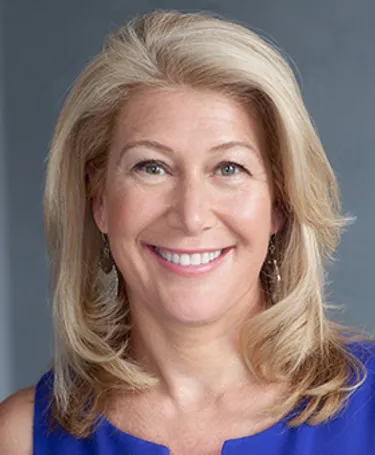Conventional Western drugs hasn’t sometimes involved itself with religious well-being. However that is perhaps altering as a rising physique of proof exhibits religious and spiritual follow can have profound well being results, particularly in regard to psychological well being.
Increased ranges of spirituality and religiousness are related to decrease ranges of melancholy, suicide, and substance misuse in any variety of research. Sustained religious follow (going to church, praying, meditating, serving to others) might also guard in opposition to posttraumatic stress dysfunction and increase psychological development after a tense state of affairs, analysis exhibits.
These practices might help you’re feeling “liked and held” throughout instances of despair, says Lisa Miller, PhD, founding father of the Spirituality Thoughts Physique Institute at Academics Faculty, Columbia College.

Lisa Miller, PhD
Individuals who discover which means and function via their spirituality typically emerge from exhausting instances feeling higher ready to deal with the following horrible factor that may occur, she says.
And it’s not merely psychological well being. Individuals who often attend spiritual companies are much less more likely to find yourself within the hospital for any cause. And once they do, they’re hospitalized for much less time, research present. Even the sickest amongst us can profit. Amongst folks with most cancers, irrespective of how extreme, these with a religious follow report a greater high quality of life.
In some instances, scientists can see adjustments within the mind.
For instance, sure areas of the mind linked to emotion, perception, and self-image mild up when folks have spiritual or religious experiences or suppose again on them, says Miller.
And components of the mind that shrink when persons are chronically depressed can truly thicken when individuals who say spirituality is essential to them have interaction in religious practices throughout and after restoration, she says.
It might be these mind adjustments themselves buffer in opposition to sure psychological well being issues, Miller says, however the analysis shouldn’t be but clear. What is obvious, says Miller, is that easy perception shouldn’t be sufficient. It’s essential to take care of a religious follow to reap the total advantages. (On this manner it’s much like different behavioral interventions, akin to cognitive behavioral remedy, for which constant follow is essential.)
One examine checked out individuals who remained religious for 8 years. In that examine, those that had a “religious awakening” via issues like self-reflection, prayer, meditation, or service and maintained the follow have been much less more likely to get depressed down the street, she says.
Your spirituality doesn’t should be overtly spiritual, says Miller. It might merely be a connection to “the next energy” or to “the transcendent.” Some folks consider it merely as “one thing better than your self.” This may vary from a conventional conception of God to reference to the universe, artworks, nature, and even different folks, in keeping with research.

Brandon Vaidyanathan, PhD
“This pure religious consciousness has a common neural pathway,” Miller says. “So, it doesn’t matter if I’m religious however not spiritual or if I’m Christian, Catholic, Muslim, Jewish, Hindu. All of us have the identical religious brains, which is gorgeous.”
It may simply imply, “I’m not a robotic and I’ve deep feelings, and I care about humanity and the planet,” says Brandon Vaidyanathan, PhD, affiliate professor and chair of sociology at The Catholic College of America in Washington D.C.
Formal beliefs and practices aren’t required. You possibly can follow gratitude and compassion, volunteer in your group, or spend time in nature. When you’re moved by music, poetry, or watching a sundown, then do extra of that, he says.
Or faucet into the spirituality of scientists and marvel on the magnificence and marvel within the pure world round you.
“Astronomers is perhaps the primary folks to see the sunshine of a specific star, and that could be a profoundly essential second that may be a religious expertise,” Vaidyanathan says. “Simply as someone watching a protein underneath a microscope is perhaps in awe of this phenomenon of life that they’re seeing unfolding in entrance of them.”
“Among the language round spirituality might be very individualistic,” Vaidyanathan says. “However we’re social creatures. We want different folks. We want a spot to belong.”
That could be why religiousness appears to have a extra strong impact on well-being in comparison with spirituality alone. No less than that’s what Vaidyanathan and his colleagues discovered once they surveyed a bunch of scientists about their psychological well being through the COVID-19 pandemic.
“Whenever you go to a temple or a mosque or a church and also you’re along with folks, there’s a way of belonging, which is sort of the antidote to loneliness,” Vaidyanathan says. “And simply sitting and meditating in a room by your self isn’t going to present you that.”
Becoming a member of a meditation group or different non-religious religious group would possibly accomplish the identical factor, although extra analysis is required to make sure, he says.
It is essential to notice that not everybody’s expertise with spiritual or religious group is constructive. Research present you could have extra nervousness, melancholy, or general stress and misery in case you really feel responsible, deserted, or punished by your God or your group.
“And in case you’re in a non secular group the place there’s plenty of politics, plenty of pressure, and plenty of infighting and backbiting,” Vaidyanathan says, “I assure you’ll discover larger ranges of stress and nervousness in these populations.”

Anna Yusim, MD
Some practitioners already fold particular person spiritual or religious follow into cognitive behavioral remedy (CBT). Research present this may be an efficient solution to handle a wide range of psychological well being issues, significantly habit, power melancholy, and trauma.
However It is not at all times simple to seek out this sort of therapy.
“There’s undoubtedly an unmet want, particularly in relation to issues like melancholy and psychological well being,” says psychiatrist Anna Yusim, MD, a medical assistant professor at Yale College of Drugs. Yusim helps develop the forthcoming Heart for Psychological Well being and Spirituality, which will probably be “a bridge between Yale Medical College and Yale Divinity College,” she says.
Yusim integrates varied spiritual and religious practices in her therapy protocols for sufferers.
If it’s a part of their core beliefs, she’ll combine prayer, sacred texts, or spiritual companies into therapy. For these and not using a specific spiritual conviction, she makes use of different approaches akin to meditation, yoga, and breath work, which have confirmed “very highly effective and transformative” in her follow, Yusim says.
“Non secular wants are a really core and integral a part of one’s being,” Yusim says. “And that half must be engaged to ensure that the particular person to really feel entire and full. It’s not the one factor that must be there, however it actually is a type of issues.”